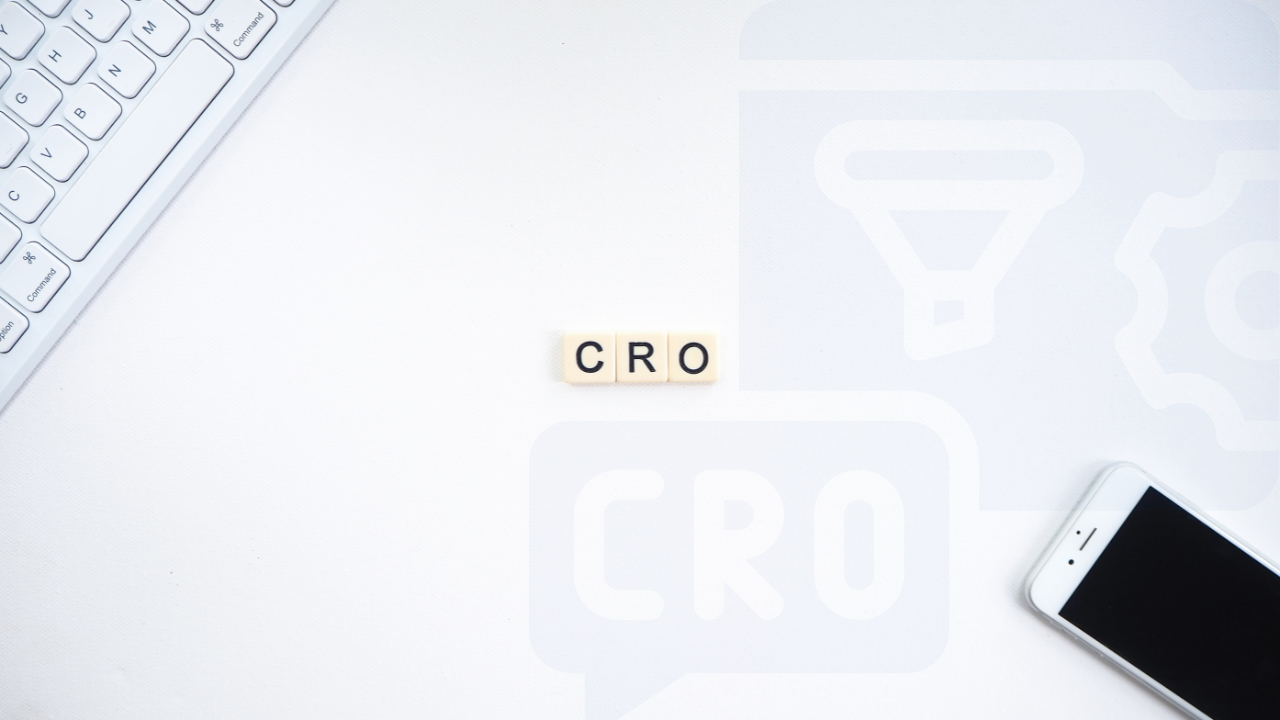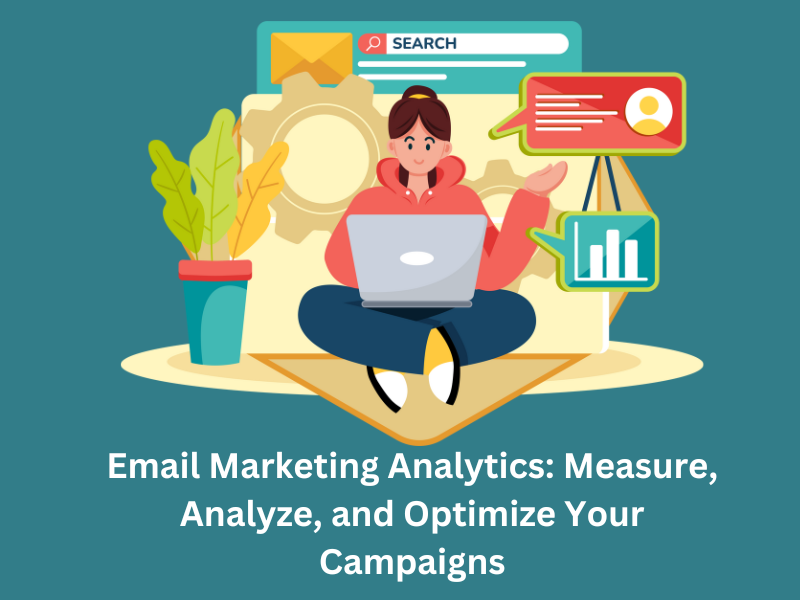Despite the rise of social media and other marketing channels, email continues to deliver impressive ROI, allowing businesses to reach their target customers directly in their inboxes. The success of an email campaign, however, isn’t just about crafting the perfect message—it’s about using the right tools to deliver, automate, and optimize those messages.
Email marketing tools have evolved significantly, offering advanced features that go beyond simple email distribution. These platforms provide automation, segmentation, analytics, and personalization capabilities, empowering businesses to create highly targeted campaigns that resonate with their audience. From small startups to large enterprises, the right email marketing software can streamline your marketing efforts, increase engagement, and boost conversions.
This article will explore ten essential email marketing tools that can elevate your campaigns, helping you choose the best platform to meet your business needs. Whether you’re looking for essential email marketing tools, email automation tools, comprehensive marketing suites, or cost-effective solutions for your growing business, there’s something here for everyone.
1. Mailchimp
Mailchimp has earned its reputation as one of the most popular and versatile email marketing tools on the market today. Whether you’re a small business owner just starting out or an established company looking to expand your reach, Mailchimp offers a robust suite of features that cater to various marketing needs.
Overview: Founded in 2001, Mailchimp has grown from a simple email distribution service to a comprehensive marketing platform used by millions of businesses worldwide. Its intuitive interface and extensive features make it an ideal choice for marketers who want an all-in-one solution for their email marketing campaigns.
Key Features:
- Email Templates: Mailchimp provides a wide range of customizable email templates, allowing users to create professional-looking emails without the need for design skills. The drag-and-drop editor makes it easy to tailor each template to match your brand’s style and messaging.
- Automation: One of Mailchimp’s standout features is its powerful automation capabilities. Users can set up automated email sequences based on user behavior, such as welcome emails, abandoned cart reminders, and post-purchase follow-ups. This level of automation helps businesses maintain consistent engagement with their audience without manually sending emails.
- Analytics: Mailchimp’s detailed analytics dashboard provides insights into your email campaigns’ performance. You can track open rates, click-through rates, and conversion rates to understand how your audience is interacting with your emails. This data helps you refine your strategy and improve future campaigns.
- Integrations: With a vast array of integrations, Mailchimp seamlessly connects with other popular platforms like Shopify, WordPress, and social media networks. This makes it easier to sync your marketing efforts across different channels and maximize your reach.
Best For: Mailchimp is best suited for small to medium-sized businesses looking for a comprehensive email marketing solution that’s easy to use and offers a wide range of features. Its flexible pricing plans make it accessible for businesses with varying budgets, and its scalability ensures it can grow with your company as your marketing needs evolve.
2. Constant Contact
Constant Contact is another heavyweight in the email marketing world, known for its reliability and user-friendly interface. As one of the oldest email marketing platforms, Constant Contact has continually evolved to meet the changing needs of businesses, providing a solid foundation for building and managing successful email campaigns.
Overview: Founded in 1995, Constant Contact has a long-standing presence in the email marketing industry. It has built its reputation on delivering exceptional customer support and a straightforward, easy-to-navigate platform. This makes it an excellent choice for businesses that prioritize simplicity and want a tool that requires minimal setup time.
Key Features:
- Email Templates: Constant Contact offers a variety of customizable email templates that help you create visually appealing emails quickly. The drag-and-drop editor allows for easy modifications, ensuring your emails reflect your brand’s unique voice and style.
- Event Management: One feature that sets Constant Contact apart from many other email marketing tools is its event management capabilities. You can create and manage event invitations, registrations, and reminders directly from the platform, making it an ideal choice for businesses that frequently host events.
- Contact Management: The platform provides robust contact management features, allowing you to import and organize your email lists effortlessly. You can segment your audience based on demographics, behavior, or engagement levels, enabling more targeted and effective email campaigns.
- Automation: While Constant Contact’s automation capabilities are less extensive than some competitors, it still offers essential automation features such as welcome emails and drip campaigns. These automated sequences help maintain consistent communication with your subscribers and nurture leads over time.
Best For: Constant Contact is best suited for small businesses and nonprofits that need a straightforward, reliable email marketing solution. It’s particularly beneficial for organizations that host events regularly, as its event management features are top-notch. Additionally, its customer support is highly rated, making it a great choice for users who might need extra assistance as they navigate the platform.
3. SendinBlue
SendinBlue is a versatile and cost-effective email marketing tool that has rapidly gained popularity for its comprehensive features and scalability. Originally launched as a transactional email service, SendinBlue has expanded its offerings to include a full suite of marketing tools, making it an attractive option for businesses looking to integrate email with other digital marketing strategies.
Overview: Founded in 2012, SendinBlue is a relatively new player in the email marketing arena, but it has quickly become a favorite for businesses of all sizes. Its intuitive platform is designed to simplify complex marketing tasks, offering tools for email marketing, SMS marketing, and more, all within a single, easy-to-use interface.
Key Features:
- Email and SMS Marketing: One of SendinBlue’s standout features is its ability to manage both email and SMS campaigns from the same platform. This allows businesses to create integrated marketing strategies that reach customers across multiple channels, increasing engagement and conversion rates.
- Automation: SendinBlue offers powerful automation tools that help streamline your marketing efforts. You can set up automated workflows based on user actions, such as sending follow-up emails after a purchase or a series of emails to re-engage inactive subscribers. This level of automation saves time and ensures consistent communication with your audience.
- Transactional Emails: In addition to marketing emails, SendinBlue also specializes in transactional emails—messages triggered by specific user actions, like order confirmations or password resets. These are crucial for e-commerce businesses that need to maintain a seamless user experience.
- Advanced Analytics: SendinBlue provides detailed analytics and reporting features that offer insights into your campaign performance. You can track metrics like open rates, click-through rates, and deliverability, helping you refine your strategy and optimize future campaigns.
Best For: SendinBlue is best suited for businesses that want a versatile tool capable of handling both email and SMS marketing. It’s an excellent choice for companies looking for an affordable platform that scales with their needs, especially those in e-commerce and retail sectors that rely heavily on transactional emails. Additionally, its pricing model is based on the number of emails sent rather than the size of your contact list, making it a cost-effective solution for businesses that send high volumes of emails.
4. HubSpot Email Marketing
HubSpot Email Marketing is a part of the larger HubSpot ecosystem, which offers a comprehensive suite of tools designed to cover all aspects of marketing, sales, and customer service. Known for its robust functionality and seamless integration with HubSpot’s CRM, HubSpot Email Marketing is an excellent choice for businesses looking to unify their marketing efforts under one platform.
Overview: Founded in 2006, HubSpot has become a leader in inbound marketing and sales. HubSpot Email Marketing stands out because it’s part of HubSpot’s all-in-one CRM platform, allowing businesses to leverage extensive customer data to create highly personalized email campaigns. The platform is known for its intuitive interface, making it easy for marketers of all skill levels to create and manage effective email campaigns.
Key Features:
- Advanced Segmentation: HubSpot Email Marketing excels in its ability to segment contacts based on a variety of criteria, such as website behavior, purchase history, and engagement level. This allows businesses to send highly targeted emails that resonate with specific segments of their audience, improving open and click-through rates.
- Personalization: With HubSpot, personalization goes beyond just inserting a contact’s name. You can customize emails with dynamic content tailored to the individual recipient, based on their behavior and preferences. This level of personalization enhances the user experience and boosts engagement.
- Automation: HubSpot offers robust automation capabilities that allow users to create complex workflows to nurture leads and drive conversions. From simple drip campaigns to multi-step automated sequences that guide users through the sales funnel, HubSpot’s automation tools can be tailored to meet the needs of any business.
- CRM Integration: One of the key advantages of using HubSpot Email Marketing is its seamless integration with HubSpot’s CRM. This integration provides a holistic view of each contact’s interactions with your business, enabling more informed marketing decisions and better customer relationship management.
Best For: HubSpot Email Marketing is best suited for businesses looking for an integrated marketing platform that combines email marketing with CRM, automation, and other marketing tools. It’s particularly beneficial for companies that rely heavily on inbound marketing strategies and want to leverage data-driven insights to enhance their email campaigns. While HubSpot can be more expensive than some other tools, its comprehensive features and ability to streamline marketing efforts across different channels often justify the investment.
5. GetResponse
GetResponse is a comprehensive email marketing tool that combines powerful automation features with user-friendly design to help businesses of all sizes grow and engage their audience. With a strong focus on marketing automation and versatility, GetResponse offers a range of tools that go beyond traditional email marketing, making it an excellent choice for businesses looking to integrate multiple marketing strategies into one platform.
Overview: Founded in 1998, GetResponse has evolved significantly over the years, expanding its capabilities to become more than just an email marketing platform. Today, it offers an all-in-one solution that includes email marketing, landing pages, webinars, and advanced automation features. This makes it an ideal choice for businesses looking to streamline their marketing efforts and achieve more with less effort.
Key Features:
- Autoresponders: GetResponse’s autoresponder feature is one of its core strengths. It allows businesses to set up automated email sequences triggered by specific actions or time intervals. This helps maintain consistent engagement with subscribers, nurturing leads through every stage of the customer journey.
- Marketing Automation: GetResponse provides a robust set of automation tools that allow you to create complex workflows based on user behavior and preferences. With its drag-and-drop workflow builder, you can easily design automation sequences that guide subscribers from initial contact to conversion, optimizing each step for maximum impact.
- Landing Pages: In addition to email marketing, GetResponse offers a built-in landing page creator. This feature enables you to design high-converting landing pages without needing a separate tool, making it easier to capture leads and grow your email list.
- Webinar Hosting: Unique among many email marketing platforms, GetResponse includes webinar hosting capabilities. This feature is particularly valuable for businesses that use webinars as part of their marketing strategy, providing an integrated solution for promoting, hosting, and following up on webinars.
Best For: GetResponse is best suited for businesses looking for a versatile marketing tool that combines email marketing with other essential features like landing pages and webinars. It’s especially useful for companies that want to leverage advanced automation to drive engagement and conversions. Whether you’re a small business owner or a marketer at a larger organization, GetResponse’s flexible and comprehensive platform can help you create more effective and efficient marketing campaigns.
6. AWeber
AWeber is a well-established email marketing platform designed with simplicity and effectiveness in mind. It offers a range of straightforward tools that make it easy for small businesses and entrepreneurs to start and manage email marketing campaigns. Known for its user-friendly interface and excellent customer support, AWeber is a solid choice for those new to email marketing or looking for a reliable, no-frills solution.
Overview: Founded in 1998, AWeber has built a reputation as one of the pioneers in the email marketing industry. The platform has stayed true to its mission of providing simple yet powerful email marketing tools, focusing on ease of use and customer support. AWeber’s commitment to these principles makes it an appealing option for users who want to get started quickly without a steep learning curve.
Key Features:
- Autoresponders: AWeber’s autoresponder functionality is central to its offering, allowing users to create automated email sequences that are triggered by specific subscriber actions or time-based intervals. These autoresponders are ideal for maintaining regular contact with your audience, from welcoming new subscribers to nurturing leads over time.
- List Management: AWeber provides robust list management tools that make it easy to organize your subscribers into different segments. This allows for more targeted email campaigns, ensuring your messages reach the right people at the right time.
- Email Templates: AWeber offers a variety of customizable email templates that are mobile-responsive and designed to look great on any device. The drag-and-drop editor makes it easy to personalize these templates to fit your brand’s style and voice.
- Analytics: AWeber’s analytics dashboard provides essential insights into your email campaigns’ performance, including open rates, click-through rates, and subscriber growth. This data helps you understand what’s working and where there’s room for improvement, allowing you to fine-tune your strategy for better results.
Best For: AWeber is best suited for small businesses, entrepreneurs, and beginners who are new to email marketing. Its straightforward interface and excellent customer support make it easy to set up and manage email campaigns without needing extensive technical knowledge. AWeber’s affordable pricing and reliable features make it a great option for those looking to start small and grow their email marketing efforts over time.
7. ActiveCampaign
ActiveCampaign is a powerful email marketing tool that combines advanced automation features with CRM capabilities, making it a favorite among businesses that need more than just basic email marketing. Known for its robust functionality and emphasis on personalization, ActiveCampaign is ideal for businesses looking to enhance their customer relationships through targeted and automated email campaigns.
Overview: Founded in 2003, ActiveCampaign has grown to become one of the leading email marketing and automation platforms in the market. The platform stands out for its comprehensive approach to customer experience automation (CXA), allowing businesses to automate their marketing, sales, and customer service processes. With its deep focus on segmentation and automation, ActiveCampaign enables users to create highly personalized and effective marketing campaigns.
Key Features:
- Advanced Automation: ActiveCampaign’s automation capabilities are among the best in the industry. The platform offers a visual automation builder that allows users to create complex workflows tailored to specific customer journeys. You can automate everything from welcome sequences and follow-ups to sales processes and customer retention strategies, helping you engage customers at every stage of the funnel.
- CRM Integration: ActiveCampaign is more than just an email marketing tool—it also includes built-in CRM functionality. This integration allows businesses to manage their customer relationships directly within the platform, tracking interactions and automating follow-up tasks. This helps streamline sales processes and ensures that marketing and sales teams are always aligned.
- Segmentation and Targeting: ActiveCampaign offers advanced segmentation options that let you categorize your audience based on behavior, demographics, and other criteria. This makes it easier to send targeted emails that are relevant to specific groups, increasing the likelihood of engagement and conversion.
- Machine Learning: The platform’s machine learning capabilities, such as predictive sending and lead scoring, help optimize your marketing efforts by predicting the best times to send emails and identifying high-potential leads. These features enhance the effectiveness of your campaigns and improve overall marketing ROI.
Best For: ActiveCampaign is best suited for businesses that want to combine email marketing with CRM and advanced automation features. It’s particularly valuable for companies with complex customer journeys that require sophisticated automation and segmentation. Whether you’re a growing business or a larger organization looking to scale your marketing efforts, ActiveCampaign provides the tools you need to create more personalized and effective campaigns.
8. ConvertKit
ConvertKit is an email marketing platform specifically designed for creators, such as bloggers, podcasters, and YouTubers, who want to grow their audience and monetize their content. With a strong emphasis on simplicity and audience engagement, ConvertKit provides a range of tools that help creators connect with their followers and build a loyal community through targeted email campaigns.
Overview: Launched in 2013, ConvertKit was built to meet the unique needs of content creators who need to communicate effectively with their audiences without getting bogged down in complicated software. ConvertKit’s focus is on simplicity and ease of use, offering a streamlined experience that allows creators to spend more time creating and less time managing their email marketing.
Key Features:
- Email Automation: ConvertKit provides powerful automation capabilities that make it easy for creators to set up automated email sequences tailored to their audience’s journey. Whether it’s welcoming new subscribers, delivering content upgrades, or promoting products, ConvertKit’s automation tools help ensure consistent and meaningful communication with your audience.
- Subscriber Tagging and Segmentation: One of ConvertKit’s standout features is its ability to tag and segment subscribers based on their behavior and interests. This enables creators to send highly targeted emails that resonate with specific audience segments, improving engagement and conversion rates.
- Landing Pages and Forms: ConvertKit includes a variety of customizable landing pages and forms designed to capture leads and grow your email list. These tools are particularly useful for creators who want to offer freebies, promote webinars, or launch new products.
- Visual Automation Builder: ConvertKit’s visual automation builder is intuitive and easy to use, allowing you to create complex automation workflows with a few clicks. This feature helps you design tailored email sequences that guide subscribers through your content and offerings in a way that feels natural and personalized.
Best For: ConvertKit is best suited for creators and small business owners who want a simple, effective tool for building and nurturing their email lists. Its focus on ease of use, combined with powerful segmentation and automation features, makes it an excellent choice for those who want to grow their audience without the need for a steep learning curve. If you’re a blogger, influencer, or entrepreneur looking to engage your audience and monetize your content, ConvertKit offers a range of features designed to help you achieve your goals.
9. Drip
Drip is an email marketing platform specifically designed for e-commerce businesses looking to build deeper relationships with their customers. By focusing on personalization and customer behavior tracking, Drip allows online retailers to create highly targeted and engaging email campaigns that drive conversions and increase customer loyalty.
Overview: Founded in 2013, Drip has quickly established itself as a go-to email marketing solution for e-commerce brands. The platform’s robust automation and segmentation features are tailored to meet the unique needs of online businesses, allowing them to deliver personalized shopping experiences. Drip’s ability to integrate with popular e-commerce platforms like Shopify, WooCommerce, and Magento further enhances its appeal, making it easier for businesses to sync their marketing efforts with their online stores.
Key Features:
- E-commerce Integrations: Drip seamlessly integrates with a wide range of e-commerce platforms, allowing businesses to track customer behavior and purchase history directly from the platform. This integration helps create more relevant and timely email campaigns that are tailored to each customer’s shopping habits.
- Behavior-Based Automation: Drip’s behavior-based automation tools enable you to send targeted emails based on specific customer actions, such as browsing products, adding items to the cart, or completing a purchase. These automated workflows help nurture leads and encourage repeat purchases, driving higher sales and customer retention.
- Advanced Segmentation: With Drip, you can segment your audience based on a variety of factors, including purchase behavior, engagement level, and customer lifecycle stage. This level of segmentation allows you to create highly personalized campaigns that speak directly to your customers’ needs and preferences.
- Personalization: Drip offers dynamic content and personalized product recommendations that can be tailored to individual customers based on their browsing and purchase history. This personalization helps enhance the shopping experience and boosts conversion rates by showing customers the products they’re most interested in.
Best For: Drip is best suited for e-commerce businesses looking for a powerful email marketing tool that focuses on personalization and customer behavior. Its seamless integration with popular e-commerce platforms and robust automation features make it an ideal choice for online retailers who want to create targeted, data-driven email campaigns. Whether you’re a small online shop or a larger e-commerce brand, Drip provides the tools you need to build strong customer relationships and drive sales.
10. MailerLite
MailerLite is an email marketing platform known for its simplicity, affordability, and effectiveness, making it a popular choice for startups and small businesses. With a focus on user-friendliness, MailerLite provides all the essential tools needed to create and manage email campaigns without the complexity or high cost of more advanced platforms.
Overview: Launched in 2010, MailerLite has quickly become a favorite among businesses looking for a straightforward email marketing solution. The platform offers a clean and intuitive interface, making it easy for users to navigate and get started with their email campaigns. Despite its simplicity, MailerLite does not skimp on functionality, providing a robust set of features that cater to a wide range of marketing needs.
Key Features:
- Drag-and-Drop Editor: MailerLite’s drag-and-drop editor is designed to make email creation simple and intuitive. Users can easily customize templates or create emails from scratch, ensuring their campaigns align with their brand’s visual identity without needing any coding skills.
- Automation: MailerLite offers basic automation features that allow users to set up automated email sequences based on subscriber behavior and triggers. While not as advanced as some competitors, these automation tools are more than sufficient for small businesses and beginners looking to streamline their email marketing efforts.
- Landing Pages: In addition to email marketing, MailerLite includes a landing page builder that enables users to create professional-looking pages for lead generation, product promotion, or event registration. This feature is particularly valuable for businesses that want to capture leads and grow their email list without using additional tools.
- Analytics and Reporting: MailerLite provides essential analytics and reporting features that give users insights into their email campaigns’ performance. Metrics like open rates, click-through rates, and subscriber growth are all easily accessible, helping businesses understand what works and where improvements can be made.
Best For: MailerLite is best suited for startups, small businesses, and individuals who need a budget-friendly email marketing tool that’s easy to use and offers all the basic features needed to run successful campaigns. Its straightforward pricing model, which includes a generous free plan, makes it an excellent choice for those who are just starting out or have limited marketing budgets. If you’re looking for a no-frills email marketing platform that provides great value for money, MailerLite is a solid option.
Go High Level
Go High Level is an all-in-one marketing platform designed for agencies and small businesses looking to automate their marketing efforts and streamline their workflows. It combines email marketing with a comprehensive suite of tools that include CRM, SMS marketing, funnels, and more. This makes it a powerful option for businesses that want to manage all their marketing activities from a single platform.
Overview: Founded in 2018, Go High Level was built specifically for digital marketers and agencies that need a robust platform to handle multiple clients and campaigns. Unlike many email marketing tools that focus solely on emails, Go High Level offers a holistic approach to marketing, integrating various channels and automation tools to enhance customer engagement and lead generation.
Key Features:
- Comprehensive CRM: Go High Level includes a built-in CRM that helps businesses manage their customer relationships and sales pipelines effectively. With this CRM, users can track customer interactions, set tasks and reminders, and automate follow-ups, ensuring no lead falls through the cracks.
- Email and SMS Marketing: The platform offers both email and SMS marketing capabilities, allowing businesses to reach their audience through multiple channels. This feature is especially useful for creating integrated marketing campaigns that engage customers wherever they are, improving overall reach and effectiveness.
- Funnel and Landing Page Builder: Go High Level includes tools to create funnels and landing pages, making it easy to capture leads and nurture them through automated sequences. These tools are highly customizable and allow users to build entire marketing funnels from scratch without needing any coding skills.
- Automation: Go High Level’s automation features are robust, enabling users to automate everything from email and SMS campaigns to appointment scheduling and task management. This comprehensive automation helps save time and ensures consistent communication with leads and customers.
- Reputation Management: The platform also offers reputation management tools that allow businesses to monitor and manage their online reviews. This feature helps improve brand perception and trust, which can lead to increased customer loyalty and conversions.
Best For: Go High Level is best suited for digital marketing agencies and small businesses that want an all-in-one platform to manage their marketing efforts. It’s particularly valuable for businesses that need more than just email marketing and are looking for a solution that integrates multiple marketing tools under one roof. With its extensive automation features and focus on agency needs, Go High Level provides a powerful platform for scaling marketing efforts and improving client results.
Conclusion
Choosing the right email marketing tool can significantly impact the success of your marketing campaigns. Whether you’re a small business, an e-commerce retailer, or a content creator, the tools highlighted in this article offer a range of features to meet diverse marketing needs.
Mailchimp and Constant Contact are great for businesses seeking user-friendly platforms with comprehensive features, while SendinBlue and MailerLite provide cost-effective solutions for those on a budget. HubSpot Email Marketing and ActiveCampaign offer robust automation and CRM integration, ideal for businesses looking for more advanced functionalities. GetResponse and AWeber focus on ease of use and versatility, making them suitable for both beginners and more experienced marketers.
For e-commerce businesses, Drip stands out with its specialized features for customer behavior tracking and integration with online stores. ConvertKit is tailored for creators, offering simplicity and effectiveness in audience engagement. Go High Level provides a holistic solution for agencies and small businesses, combining email marketing with a range of other marketing tools.
When selecting an email marketing tool, consider your specific business needs, the features that matter most to you, and your budget. Testing out a few platforms with free trials can also help you find the best fit. With the right tool, you can streamline your marketing efforts, build stronger relationships with your audience, and ultimately drive more conversions.
Frequently Asked Questions (FAQ)
What are the most important features to look for in an email marketing tool?
When choosing an email marketing tool, it’s essential to look for features that align with your business goals. Key features to consider include automation capabilities, email templates, analytics and reporting, segmentation, and integrations with other platforms you use. Advanced features like CRM integration, SMS marketing, and e-commerce tracking can also be beneficial depending on your needs.
How do I choose the best email marketing platform for my business?
To choose the best email marketing platform, start by identifying your business’s specific needs, such as the size of your email list, the type of campaigns you plan to run, and your budget. Consider the platform’s ease of use, available features, customer support, and scalability. Testing different platforms through free trials can also help you make an informed decision.
Can I use multiple email marketing tools simultaneously?
Yes, you can use multiple email marketing tools simultaneously, but it’s generally more efficient to use a single platform that meets all your needs. Using multiple tools can lead to increased complexity and difficulty in managing your campaigns, data, and analytics. However, some businesses may find value in using different tools for specific purposes, such as combining an email marketing platform with a specialized CRM or automation tool.
How does email automation enhance marketing campaigns?
Email automation enhances marketing campaigns by allowing businesses to send targeted messages based on user behavior and triggers. Automation helps maintain consistent communication with subscribers, nurture leads, and drive conversions without requiring manual effort for each email sent. It ensures that the right message reaches the right person at the right time, increasing engagement and effectiveness.
Are there any free email marketing tools available?
Yes, many email marketing tools offer free plans or trials. Platforms like Mailchimp, SendinBlue, and MailerLite provide free plans with limited features and email send limits, making them ideal for small businesses or those just starting with email marketing. These free plans allow you to test out the platform and understand its capabilities before committing to a paid plan.










